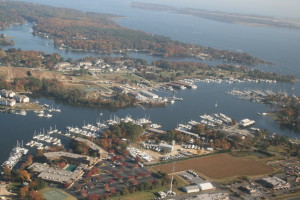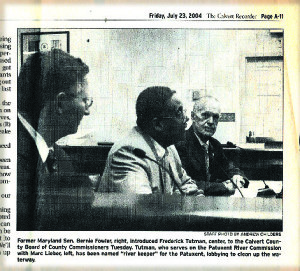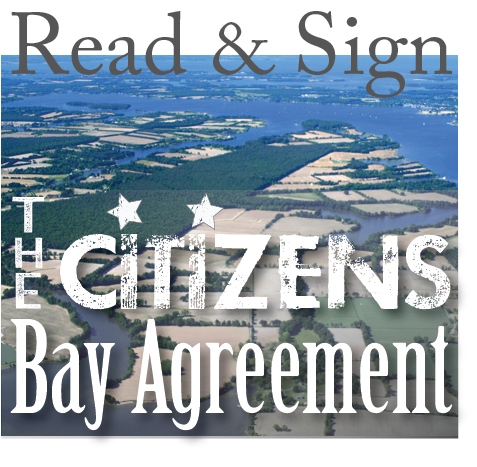Chesapeake Bay Action Plan
After decades of effort, the voluntary, collaborative approach to restoring the health and vitality of the Chesapeake Bay— the largest estuary in the United States—has not worked and, in fact, is failing.
A diverse group of 57 senior scientists and policymakers have joined forces to save the Bay. This is our plan.
BAY STATES HAVE MISSED THEIR FEDERALLY REQUIRED NITROGEN REDUCTION BY 50%
SENATOR WINEGRAD QUESTIONS CLAIMS OF VICTORY FOR “RECORD” BAY GRASS COVERAGE SIGNALIZING BAY RECOVERY SUCCESS AMIDST NEWS OF A SHOCKING 42% DECLINE IN ADULT FEMALE CRABS AND MORE RECENT NEWS OF A RADICAL DECLINE OF 50% IN MARYLAND UPPER BAY OYSTER POPULATIONS. IN ADDITION, THE BAY STATES MISSED THEIR CRITICAL FEDERALLY REQUIRED NITROGEN REDUCTIONS BY…
The Only State River Commission in Maryland Just Blinked!
Now we have been given a legal opinion* from the Secretary of the State Planning agency that by statute is charged with staffing and assisting the Commission that says we cannot comment on a really ridiculously bad townhouse development project being planned next to the river…
Perdue: More oysters, not less fertilizer, are solution …
In a recent Baltimore Sun B’More Green blog, Mr. Jim Perdue was interviewed about his vision for the cleanup of the Chesapeake Bay. http://www.baltimoresun.com/features/green/blog/bal-gr-perdue-more-oysters-not-less-fertilizer-are-solution-for-bay-cleanup-20160927-story.html ——————————————————————————————————————————————– OPINION/EDITORIAL Mr. Perdue is attempting to deflect attention away from the Eastern Shore but as long as agricultural pollution remains the number 1 source of pollution to our waterways in…
WATER POLLUTION TRADING: PAYING TO POLLUTE OUR WATERWAYS
But the environmental justice implications of water pollution trading are among the most troubling aspects of this approach. Industrial polluters that buy credits are often located in poorer communities and communities of color. By allowing these polluters to avoid controlling their own discharges and continue to dump waste into local waterways by relying on credits, water pollution trading schemes threaten the drinking water and public health of these nearby, vulnerable communities.
Draft of new Bay agreement undermines cleanup
Our group found serious shortcomings in the draft of the first Bay agreement in 14 years, the first after the mandatory adoption of the pollution diet under the Chesapeake Bay Total Maximum Daily Load and state watershed implementation plans. We fear the current draft may undermine, not advance, Bay cleanup efforts.
Bay agreement efforts are foundering
If, in 1983, we were to create a nightmare scenario for the bay, this would be it — we are living that nightmare! The cause of this decline is attributable to the failure to properly address pollutants from developed land — stormwater runoff — and from agricultural operations. About 90 percent of bay waters remain polluted in violation of the Clean Water Act
Ag Certainty: Making Certain that the Bay Remains Polluted
With Ag Certainty, we’ve just thrown a “critical” part of the TMDL out the window; the only real “certainty” that remains is that we’ll all be sitting down in 2025 again and try to come up with the next, great plan to clean up the Bay.
The 2012 Draft Comprehensive Plan for Charles County: What You Get When the Developers Write Your Plan
…some counties have revolted against the State’s threat to their autonomy and decided to test the State’s resolve to use the “stick.” Charles County seems poised to join the ranks of Frederick, Cecil and others who don’t have a problem with new development costs being born by the taxpayers and the water being too dirty for their children to play in.
We are senior Chesapeake Bay scientists and policymakers from Maryland, Virginia and Pennsylvania who have concluded that after decades of effort, the voluntary, collaborative approach to restoring the health and vitality of the largest estuary in the United States has not worked and, in fact, is failing. Our group unanimously recommends that all states draining into the Chesapeake Bay adopt our 25 action items in their Watershed Implementation Plans (WIP) and implement them to improve the Bay’s water quality and to meet the requirements of the Clean Water Act.
Sign up for news & updates from Patuxent Riverkeeper



